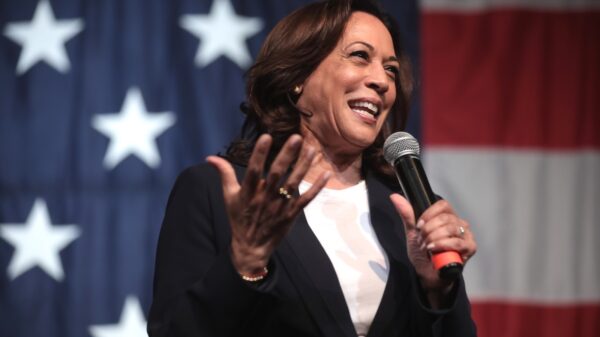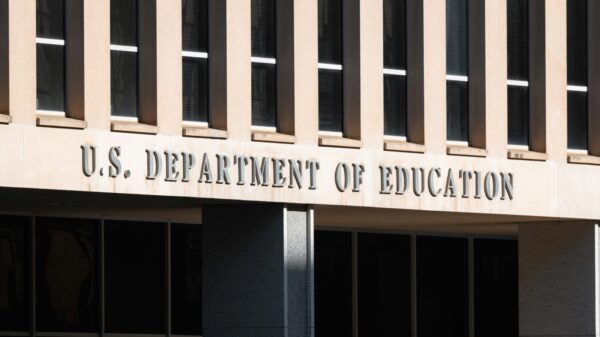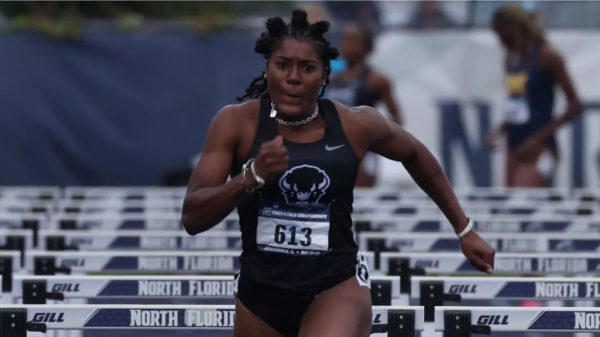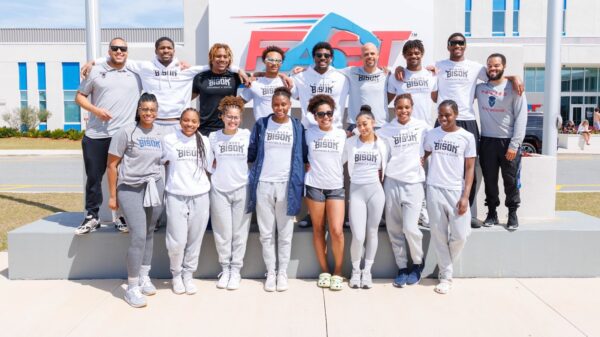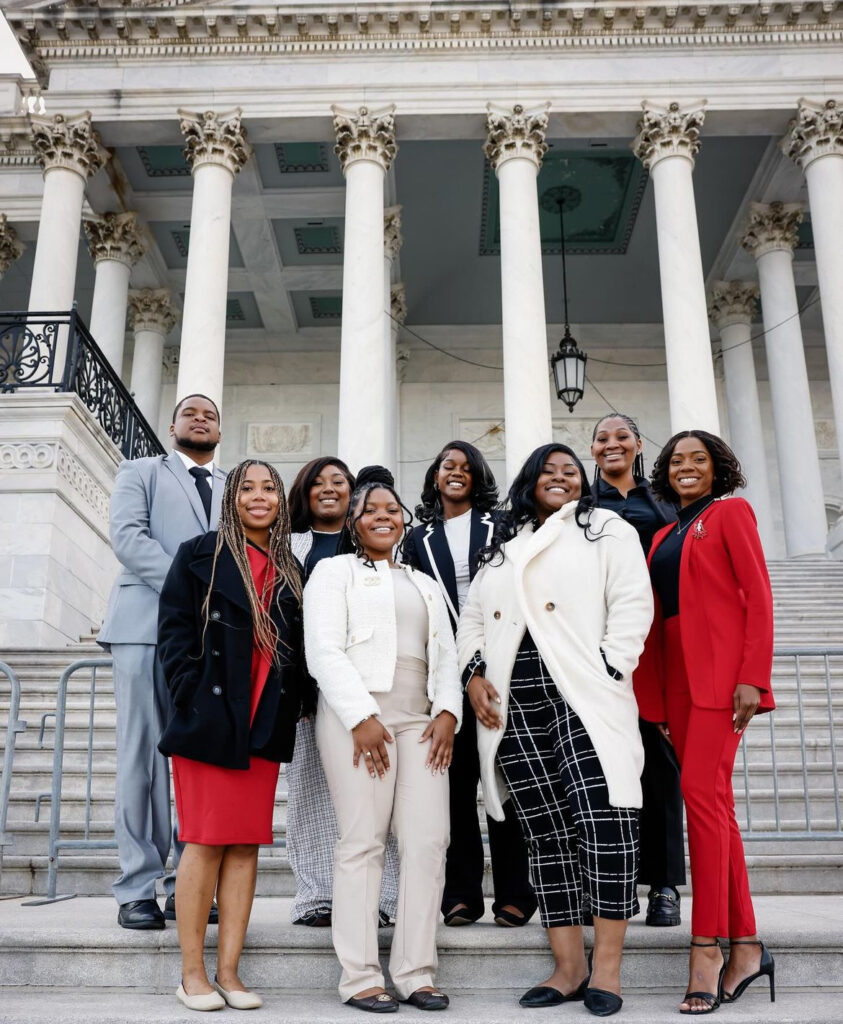
Student ambassadors from the Power to Decide initiative recently joined the Assistant Secretary for Health, Rachel Levine, at an event in the nation’s capital to address the ongoing need for sexual and reproductive health education at HBCUs.
On March 19, eight students from Tougaloo College, Tuskegee University, the University of the Virgin Islands and Xavier University at Louisiana met with the U.S. Department of Health and Human Services (HHS) in Washington, D.C. to discuss student concerns regarding health and plans to combat ongoing issues on their campuses.
The event was the first of its kind. Levine is the first transgender woman to hold federal office requiring Senate confirmation.
“It’s very important for young people to speak up, to advocate and to learn to use their voice,” Levine said.
Accompanying Levine was Loyce Pace, a public health expert who serves as the Assistant Secretary for Global Affairs for HHS. Pace is responsible for advancing the U.S. international health agenda and reports directly to the Secretary of HHS.
Pace also works as the co-chair of the Reproductive Health Task Force under the leadership of the Secretary of the Senate. For Pace, the meeting’s impact represents more than Black colleges.
“This [meeting] resonates in towns, cities [and] states in this country, but it really resonates around the world,” Pace said.
With attendees present for the historic conversation surrounding sexual and reproductive health, student representatives from Power to Decide engaged in a two-hour discussion expressing the needs of their individual schools.
Although the Biden administration promised $7 billion in financial funding to HBCUs in 2023, according to the U.S. Department of Education, HBCUs nationwide remain underfunded. The lack of overall funding was a topic repeatedly mentioned in the HHS meeting.
“Xavier needs funding,” Jalah Bates, a junior public health student at Xavier University of Louisiana (XU), said. “Not only do we need funding, [but] we need strict funding for our health services.”
In addition to funding issues, XU representatives mentioned that the school’s ties to the Catholic Church often prevent much-needed sexual education and access for students. Despite the university’s recent push for LGBTQ+ inclusion and student-led events, student leaders are concerned about the lack of basic sexual and reproductive health access for students, such as birth control and emergency contraceptives.
“We have had a lot of pushback for giving out any resources like contraceptives to students,” Xavier representative Mya Bledsoe said.
Like Howard University, Xavier University is an HBCU known for sending students to medical school.
“We need someone to advocate for us. We need someone to advocate for this initiative: Beyond the Sheets,” Bledsoe said.
According to Power to Decide, ‘Beyond the Sheets’ is a new student-led initiative that aims to advance a culture of reproductive well-being centered on the belief that every person should have equitable access to the information, services, systems and support they need to have control over their bodies.
The Beyond the Sheets initiative aims to combat stigmas surrounding sexual health by getting students directly involved and empowering them to make their own decisions related to sexuality and reproduction throughout their lives.
“In addition to funding, Tuskegee is working to uphold the reputation we have,” Wischell Joseph, an undergraduate student from Tuskegee University, said.
Tuskegee University is known for the famous Tuskegee Airmen and for being one of the only centers to develop a technology for growing food in space during human space missions, according to the university’s website.
U.S. News and World Reports currently ranks Tuskegee as the fourth best HBCU for students to attend, yet some African American students prefer predominantly white colleges, according to Insight News.
Joseph believes the lack of overall resources at HBCUs is to blame for the decline in some schools’ admissions.
“Some [students] are leaving because we don’t have all the resources that we need at HBCUs. People are going to predominantly white institutions because the money is there,” Joseph said.
In light of the rise of mental health concerns in addition to the recent Dobbs Supreme Court decision, Power to Decide continues to provide Black students with the necessary access to sexual and reproductive resources. Despite public education issues such as student loan forgiveness and higher inflation rates, the meeting was important for Power to Decide ambassadors because HBCUs endure a lack of funding, according to Nonprofit Quarterly.
“We don’t need to just settle for that. The more you talk about it, the more things can get done,” Haileigh Trainer, another student representative for Xavier, said.
Kurvonte Richards-Willett represented the University of the Virgin Islands and discussed how student leaders across campuses are using technology and innovative methods to engage students and the community to change the stigmas regarding health.
“Handing out pamphlets doesn’t work anymore,” Richards-Willett said.
Some student leaders empower students to voice their concerns through an anonymous app, which allows students to submit questions without the fear of embarrassment or retaliation.
“When you ask a person to submit questions anonymously, it’s when you get the most honesty, and honesty can be shocking,” Richards-Willett said.
The University of the Virgin Islands is the only HBCU located in the Caribbean islands. Due to the school’s location and small population, the university’s student representative, Jackeima Flemming, fears they have been “forgotten” in the larger conversation.
“We are marginalized,” Flemming said. “[Because] sex and reproduction wellness is still a very taboo topic where we come from, we felt like we needed to be part of the conversation.”
Mental health is another topic and social issue that ambassadors voiced concerns about during the HHS meeting. A Journal of Adolescent Health study found that 40 percent of Black students experience mental health issues.
Black students are also 50 percent less likely to seek help regarding mental health.
Tougaloo College campus student ambassador Rokiyah Hobbs mentioned that the school is trying to resolve these disparities by providing mental health spaces for students to unwind and seek help.
“When you have a stigma amongst the community, especially revolving around reproductive rights and your sexual education, you don’t feel comfortable bringing up that you have an STD or an STI,” Hobbs said.
For Hobbs, the HHS meeting is a start to addressing the mental health needs of Black students on HBCU campuses.
“When you don’t have outlets, most people develop mental health issues,” Hobbs said. “That’s how it comes about in our communities, and we lack health resources.”
Founded in 1996, Power to Decide was formerly known as the National Campaign to Prevent Teen and Unplanned Pregnancy. The initiative is active on social media and encourages involvement from every HBCU. For more information on the campaign, visit powertodecide.org.
Copy edited by Jalyn Lovelady


